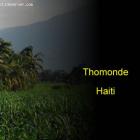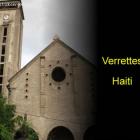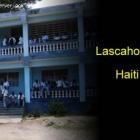ADVERTISEMENT
Dominican Republic - Haiti Observer Blog
Dominican Republic, Haiti Observer Blog. Read the following articles about Dominican Republic
Prime Minister Ralph Gonsalves on new Dominican citizenship law
Caribbean Heads of Government from several CARICOM nations gathered for the 35th edition of a four-day meeting in Antigua to address several issues affecting the regional body, established in 1974. Topics to be covered included the future of CARICOM as a sustainable geopolitical body; effects of the economic malaise; and a decision by the Dominican Republic (DR) to strip illegal aliens' off-spring of their citizenship rights.
Interim CARICOM Chairman, Ralph Gonsalves, was vociferous in his defense of approximately 500,000 Haitian descendents, who risk deportation due to being deprived of their identity documents by the DR. He said, ". . . people of Haitian descent . . . look to us (CARICOM) to give voice to . . . denial of their human rights. Don't think . . . they look simply to Haiti." Gonsalves persuaded CARICOM last year to not engage with the DR once its Constitutional Court ruled to terminate Dominican citizenship for any person that had parents, who illegally entered the DR. The Court made the ruling retroactive to 1929.
Haitian migrants in Dominican Republic lack documents to get legal status
Because Haiti suffers the reputation of being the poorest nation in the western hemisphere, it has spurred hundreds of thousands of Haitian migrants to cross over the border into the Dominican Republic (DR) seeking jobs. The DR, seeking to implement immigration control, has started a program to give resident status to Haitian migratory workers, who have been in the country prior to October 2011. The DR is asking for a Haitian identity card, passport, or birth certificate. The problem is the Haitian government's inertia in processing requests for the identity documents.
Haitians have not had an easy go of it in the Dominican Republic, but they direct their ire at Haiti's bungling bureaucracy. The immigration authorities are imposing a fee of $60 for a new birth certificate, voter ID, and passport. The fee is well beyond the means of migrant workers whose take-home pay amounts to only five dollars per day.
Why not a service to issue Haitian passports in Dominican Republic
Haitian Officials Urged to Document their Nationals for Dominican Republic Regularization Program. The Dominican Republic (DR) High Court issued a ruling last September 2013 that strips Haitian immigrants of citizenship, making them stateless. The international community has denounced the discriminatory action. Bowing to pressure from foreign governments, the DR said it would put into effect a National Plan of Regularization of Foreigners (PNRF), illegally residing in the DR.
One document Haitian immigrants need to register for the PNRF is a Haitian passport. But they are hard to obtain because the government of Haiti has relinquished the issuance of them to the Haitian Embassy in Washington, D.C. The time required to receive a passport from Washington can be up to three months.
14,765 Haitians kicked out of Dominican Republic in 2013
Haiti's past with the Dominican Republic has been a long, arduous and often bloody one. The two countries share the island of Hispaniola, but little much else is common between them. Their ethnicities are different, with Haitians being more directly of African descent and those from the Dominican Republic more of a mixed race (73%). The difference is also apparent in their languages, Haitians speaking Creole and French and the Dominican Republic residents speaking Spanish and Creole.
Many speculate that the greatest disparity, that of prosperity, was the reason behind the controversial 2013 court ruling that has now seen nearly 15,000 Haitians deported from the Dominican Republic. Though roughly 20 million inhabit the island, half of the number occupy Haiti, which takes up only 1/3rd of the island. The other 2/3rd is inhabited by those of the neighbor country numbering roughly the same amount in population. Also, The Dominican Republic has a GDP that is eight times the size of Haiti's per year: $106 billion to Haiti's $13.5 billion.
Ex-DR President Leonel Fernandez Turns Moderate on Citizenship Debate
Should Haitian migrant children who were issued birth certificates be granted citizenship in DR?
Ex-Dominican Republic (DR) President, Leonel Fernandez, considering another run for the presidency, has taken a moderate approach to the citizenship issue that has made the DR unpopular in the international community. The Constitutional Court decision last September outlaws citizenship for Haitian descendents of illegal immigrants. The DR stipulates both parents must be Dominican for a child to be a legitimate DR citizen. Many Haitian-Dominican residents cannot access their birth certificates, being held hostage by the government.
Leonel Fernandez says the government shouldn't have legitimized the births of Haitian descendents, but now it is too late. He adds, "We should . . . recognize it--the Dominican nationality of all those, who already have birth certificates." His position makes him seem a supporter of Haitians' citizenship rights. But in the streets outside a West Palm Beach economic forum Fernandez attended, Haitian-American protestors see through his guise. They know his moderate view is only for political gain.
Activist Juliana Deguis Pierre Barred from Dominican Flight to US
On March 23, 2014, Dominican immigration officers barred Juliana Deguis Pierre through a Dominican constitutional court ruling of last year to fly to U.S from Santo Domingo's airport with her lawyers to meet the officials of the Inter-American Commission on Human Rights in Washington. Pierre is a woman of Haitian origin who is fighting for Dominican citizenship. As per her statement, she was carrying necessary travel documents provided by the U.S. State Department for her visit. But the Dominican immigration officers decided they were not sufficient to allow her to travel to the scheduled meeting with the human rights body on Monday in Washington and she needs a passport.
Why does Jean Lounis stab 4-month old child in the Dominican Republic
According to Dominican Police this happened late Saturday in village of La Victoria when Jean Lounis who is 37, got into an argument with Patricia Philomar, the mother of his 4-month-old daughter. As the mother ran away to call police, Jean Lounis took his frustration on their 4-month old innocent child in the home
A local mub reacted by killing the 37 year old Haitian Jean Lounis
This kid of behaviors will not help the Haitian community in the Dominican Republic, Instead it would reinforce the conception in the Dominican Republic that we, Haitians, are uncivilized.
Haiti to register its migrants without documentation abroad
The Dominican Republic's (DR) High Court ruling last September, negating the citizenship status of natural-born Haitian descendants has caused an international furor. After months of no response from Haiti, President Martelly finally put pressure on the DR to find a solution to the problem, which potentially could displace nearly a quarter of a million Haitians, who have no papers, forcing the evacuation of Dominica-Haitians back to Haiti.
High-level discussions between Haiti and the DR began a couple of months ago, and two solutions emerged from those talks. First is an agreement between Haiti and the DR, allowing government officials to enter the DR and register undocumented Haitian citizens. National Identification Office Director, Baptiste Saint-Cyr, said the project, estimated at $2.5 million, will identify Haitian immigrants through the verification of citizens, who know their history. Second is a piece of legislation Danilo Medina, DR President, will present to Congress to naturalize Haitian descendants of illegal immigrants, who may be forced out of the country without governmental intercession.
Haiti and Dominican Republic to jointly protect the environment
After the end of second level talk between Haiti and Dominican Republic in Jimani, the capital and the second largest city of the Independencia Province in the Dominican Republic, the two neighboring nations have agreed to protect the surrounding environment of Hispaniola Island which they jointly occupy. Though they share an island, they have remained worlds apart so far. This has played a direct role in adverse climate changes and its consequences in the area. The environment ministers from the two countries have agreed upon the urgent need to save the island's natural resources and environment. They will work under joint programs to manage cross-border natural resources and improve undivided watersheds. The two countries will deploy funds, manpower and work with the local communities in a collaborative way. Some international organizations will be engaged to find solution for environmental deterioration.
Bi-lateral Talks to Resume between Haiti and the DR
High-level talks are set to resume between Haiti and the Dominican Republic (DR) in January 2014. The DR had been reluctant to continue a second round of talks last year, due to criticism the DR has received from the international community on its High Court ruling back in September 2013 that would displace nearly a quarter of a million Dominican-Haitians.
CARICOM and President Martelly set an agenda, which would require the DR to develop a plan for regularization of Dominican-Haitian citizens to receive their identity documents as quickly as possible. Martelly and CARICOM wanted to see a plan in 90 days time. CARICOM suspended the DR's membership to send a message they needed to address the citizenship issue without delay.
Our objective is to share with you news and information about Haiti and the people of Haiti. Traditions, habits and the way we were or grew are alive in this site. We highly recommend that you Subscribe to our Newsletter and also share with us some of the things that are memorable and made us unique people.

 Thomonde, Haiti
Thomonde, Haiti  Verrettes, Haiti
Verrettes, Haiti  Black Friday Shopping Season
Black Friday Shopping Season  Informative Marketing and Advertising in the Haitian Community
Informative Marketing and Advertising in the Haitian Community  Lascahobas, Haiti
Lascahobas, Haiti